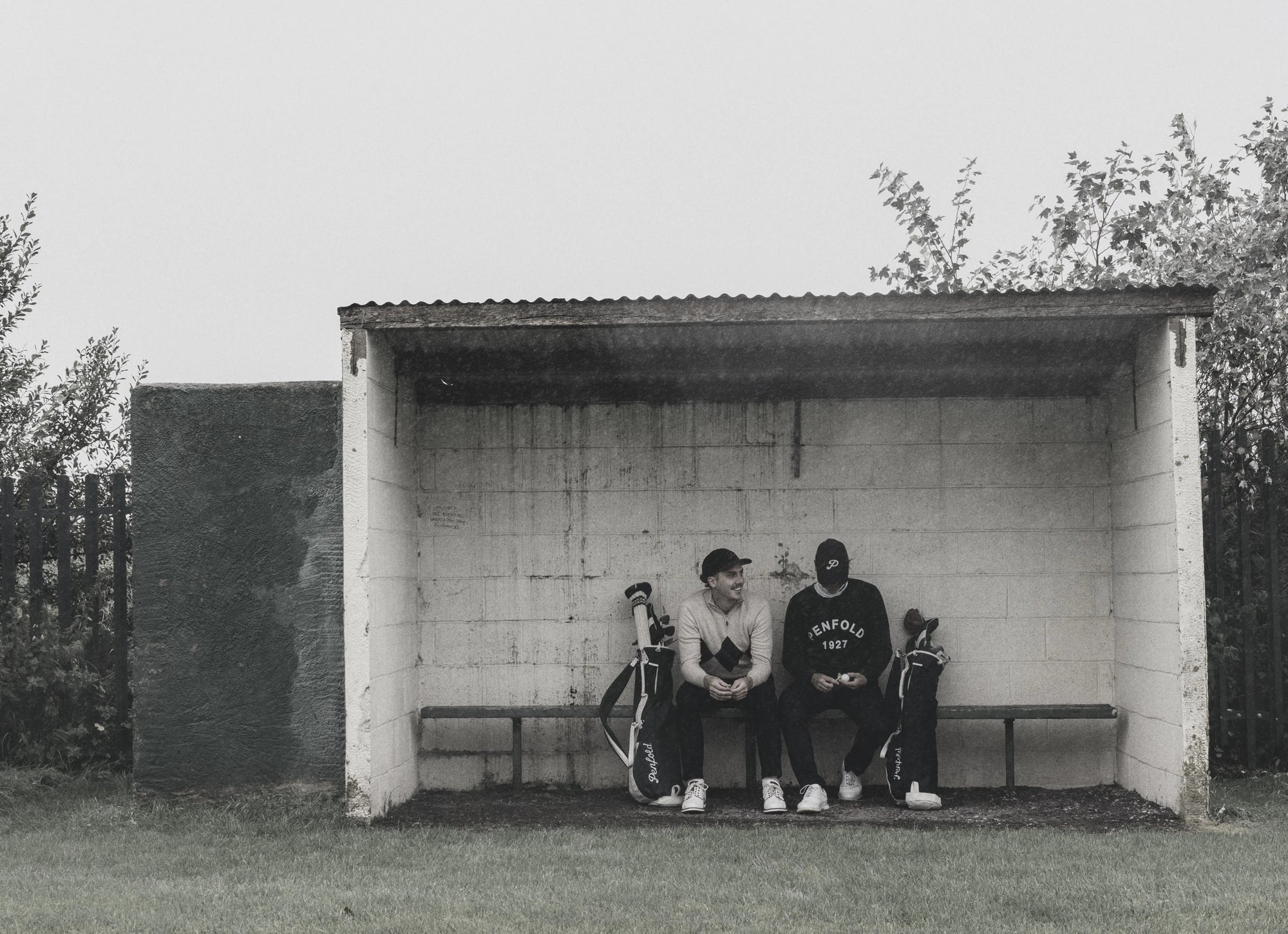It’s not commonplace that a golf manufacturer and a golf course share a history, but that’s certainly the case with Penfold and Maesdu. You could even say they grew up together.
Maesdu was founded in 1915, while Britain and the rest of the world was at war on the continent. It was essentially a “muni,” as the town council purchased the land and hired James Braid to turn it into a golf course. What Braid gave them was a mixture of parkland and links with gently rolling fairways and more water hazards than you’d expect.
The first hole, a short Par-3, serves as a nice little handshake to get you started. The second hole is a short Par-4, but Maesdu bears its teeth as you get closer to a green that’s guarded by a large pond and a pair of menacing bunkers. The Irish Sea comes in to view on the 8th hole and several holes on the back nine offer dramatic views of the ocean in one direction and the mountains of Snowdonia National Park in the other.

Penfold would open for business 12 years later in 1927, providing state-of-the-art golf balls for professionals and amateurs alike. By the early 1930s, Penfold began sponsoring professional events, planting seeds that would eventually blossom decades later into the European Tour. By 1946, the Penfold Tournament became a prestigious event.
And it was only a matter of time before Maesdu head professional Tom Jones (no, not that one) would bring the Penfold to his home course.
In total, Maesdu hosted the Penfold six times, including three years in a row between 1952 and 1954. The ’54 champion was three-time Open Championship winner and Ryder Cup captain Sir Henry Cotton who, at age 47, outlasted 29-year-old John Jacobs in match play.

Renamed the Swallow-Penfold Tournament in 1955 after Penfold’s partnership with the Swallow Raincoat company, the tournament would return to Maesdu three more times in 1960s. But it’s the 1964 event that’s still remembered today, 60 years later.
The only people in England who had a better 1964 than Peter Alliss were John, Paul, George and Ringo. Not only did Alliss win three tournaments, he was also establishing himself as a broadcaster and famously gave golf lessons to one Sean Connery. Thanks to Alliss’ tutelage, Connery’s James Bond and his trusty Penfold Heart would sneak past Auric Goldfinger in a match for the ages.

Alliss was riding high when he arrived in North Wales in early May. And over the next four days, Maesdu would play host to a battle royale pitting the 33-year-old Alliss against a pair of twenty-somethings, Alex Caygill and Hedley Muscroft, and old pro Harry Weetman. Alliss was using a new putting stroke for the Swallow-Penfold. The Glasgow Herald described Alliss as “gripping his club well down the shaft and bending over the ball with a solid stance.”
A first round 71 placed Alliss two shots out of the lead. None of the leaders fared well in the second round. Allis fired a 78, Caygill a 77 and Muscroft an 80. A 70 in the third round gave Alliss a slim one stroke lead over Caygill going into the final round. Weetman, a four-time Penfold winner – including the 1962 tournament at Maesdu - was also lurking. Muscroft, seven strokes back, was seemingly out of the running.
The final round was the stuff of legend. The 24-year-old Caygill played brilliantly early, overtaking Alliss to hold a three stroke lead with only five holes to play. Allis, however, would not break. He rolled in an eight-footer to save par on 14 and his expert touch around the green gave him tap-in birdie on 15.
And while Caygill was struggling to hold on to his lead, Muscroft was closing like a thoroughbred. His final round 69 was the low score of the day, but it would not be enough. The tournament would belong to Allis, who held on for pars on 17 and 18 for a hard-earned, come from behind victory. His 293 was one stroke better than both Caygill and Muscroft, and two strokes better than Weetman.
60 years later, only Alex Caygill is still with us. He would earn 20 professional wins, including the 1969 Penfold Tournament. Caygill also played in the ’69 Ryder Cup.
Harry Weetman would win 17 tournaments on the British PGA Tour during his career, including the Penfold four times. He played in seven Ryder Cups. Weetman died in July of 1972 at the age of 51 following a car accident.
Hedley Muscroft enjoyed a long career, playing on both the European Tour starting in 1972 and the European Senior Tour from 1992 through 2000. His two sons, Duncan and Richard also played professionally. Muscroft passed away in March 2023, just weeks shy of his 85th birthday.
Alliss, best known in later years as the legendary “Voice of Golf,” won 20 professional tournaments in his competitive career, including three British PGA Championships. He played on eight Ryder Cup teams, including the victorious 1957 squad, and became a prolific golf course architect, with over 70 courses to his name. He was inducted into the World Golf Hall of Game in 2012.
He died in December 2020, at the age of 89.

